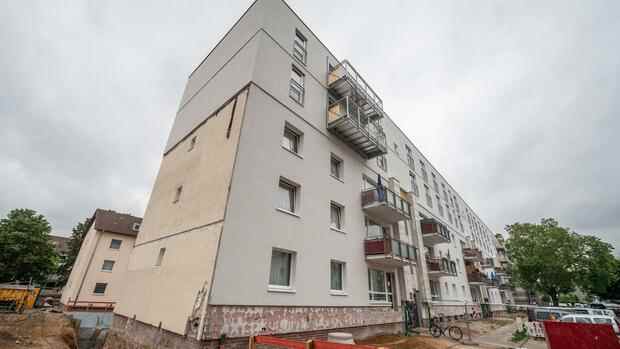Another argument for investing in real estate: after all, traditional tangible assets are rightly regarded as reliable protection against inflation. But there are also fears that global inflation concerns could lead to a dangerous mix, especially for property buyers.
Because if you want to invest your capital in a house or apartment now, you have to consider the possible downside of higher inflation – rising interest rates. Construction money is currently still very cheap, but the first signs of an impending turnaround in interest rates could change the framework conditions.
In addition, real estate in Germany is already very expensive, but rents cannot keep up, so that returns for investors keep falling. Should inflation concerns fuel the flight into real assets, a further rise in prices is more than likely.
Top jobs of the day
Find the best jobs now and
be notified by email.
Such a mixture of rising interest rates, high prices and falling yields would undoubtedly be poison for investors. Most experts are convinced that it doesn’t have to get that far. You have good arguments.
Mortgage rates are moving sideways
How high the interest rates are that banks in Germany charge for real estate loans only indirectly depends on the key interest rate of the European Central Bank (ECB). The yield on ten-year Bunds is much more decisive. Although it has risen recently, it is still below the zero percent mark. That is why Michael Neumann, CEO of the financing broker Dr. Small, little change for the time being: “The conditions for construction financing will remain at an extremely low level in the coming weeks,” is his prognosis.
According to FMH-Finanzberatung, the average interest rate for building money with a ten-year fixed interest rate is currently 0.75 percent per year. Anyone who buys a property for 500,000 euros, brings 100,000 euros as equity and finances the rest through the bank, pays just an effective interest rate of 0.67 percent annually for a ten-year loan with three percent repayment per year from the best provider. This corresponds to a monthly rate of 1216 euros for interest and repayment.
Dr. Klein expert Neumann does not expect building interest rates to rise until the ECB sends a clear signal to end its pandemic bond purchase program. The EUR 1.85 trillion program known as PEPP will run until at least the end of March 2022. ECB President Lagarde has announced a decision for December on whether it will be extended. Neumann considers “an expansion of PEPP either beyond March 2022 or beyond the currently set amount to be a perfectly conceivable scenario”.
Financial expert Kurt Neuwirth does not believe in a turnaround in interest rates either. His arguments: The price increase is “temporary and unsustainable”, and he also assumes that the ECB will “maintain special programs to support the economy”, as he recently wrote in a guest article for the Handelsblatt newsletter Inside Real Estate.
Borrowers make pluses
Ingo Foitzik, managing director of mortgage lending at the comparison portal Check24, points to another surprising effect from increased inflation and largely stable real estate interest rates. The inflation rate of 3.8 percent in July means “a clearly negative real interest rate for the vast majority of property owners with an ongoing construction loan”. If the inflation rate is higher than the long-term agreed interest on building money, this means that bank customers even earn money with their loan – at least mathematically. Foitzik is therefore convinced: “The real estate market is one of the few ways to protect assets from depreciation in the long term.”
So the risk of rising interest rates seems manageable. The question that remains is how prices will develop. In any case, between April and June, according to the Federal Statistical Office, condominiums and houses rose in price nationwide by 10.9 percent compared to the same quarter of the previous year – it was the largest price increase since 2000. And another trend continued: in the meantime, residential property prices are no longer rising only in the big cities, but also in the surrounding areas and in the country.
More on the subject:
Anyone who has already invested in residential property will be pleased with this news. If you want to get in or buy, however, you have to expect even tougher competition and even lower returns. Sandra Ludwig, Managing Director Investment of the Hamburg brokerage firm Grossmann & Berger, expects that the prices for fully rented houses in normal locations in the Hanseatic city will continue to rise in 2022 – “although not as strongly as in the current year-earlier comparison,” says the investment expert. In the best locations in the city, the initial return for prime properties is now just over two percent, but it will only go down slightly in the coming year. “For properties in B and C locations as well as in the Hamburg area, returns of over three percent can still be achieved,” adds Ludwig.
Higher prices also mean that buyers are taking out ever higher loans. In August, borrowers needed an average of EUR 312,000 as outside capital – a record figure. A year earlier it was 22,000 euros less, data from Dr. Small. At the same time, the level of debt rose to more than 84 percent again. Buyers financed just 16 percent of the purchase price with their own savings.
More: Trendviertel dossier 2021: Where real estate is still worthwhile now
